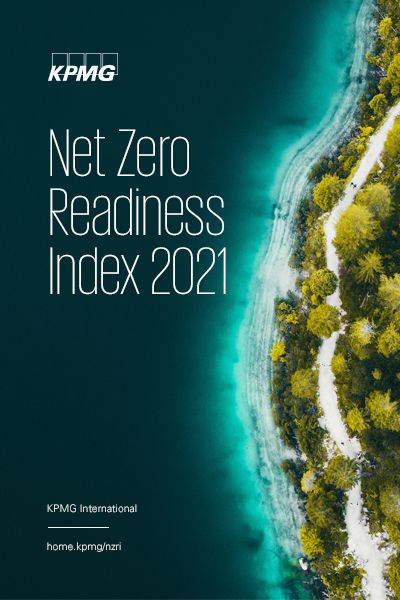Despite its present low level of readiness, a focus on energy security and determination to use coal reserves, Turkey is moving in the right direction through private sector and investor pressure and its links with the EU.
EU alignment
Turkey is technically an official candidate country to join the EU, with ongoing negotiations that started in 2005, although these stalled in 2016.2 “EU directives are broadly transplanted into Turkish legislation,” says Şirin Soysal, Partner, Audit and Assurance, KPMG in Turkey, as a result of this status.
This has led to Turkey introducing a version of the monitoring, reporting and verification of large greenhouse gas emitters used in the first phase of the EU’s emissions trading system, established with support from the German federal government, which covers more than 700 industrial sites.3 The country recently introduced requirements for large Turkish companies to publish annual data on greenhouse gas emissions, based on an EU financial reporting directive, although some already did this voluntarily.

Private sector and energy demand
In general, Soysal says that companies in the financial, telecoms, and food and drink sectors are among those spearheading national efforts to reduce emissions. This is partly because they are consumer-facing companies subject to customer and investor pressures, but partly because many are subsidiaries or joint-ventures of multi-national groups that have made global commitments on climate change.
Turkey’s need for energy is growing with its population and economy, and its focus is on security of supply rather than emissions. It does not have significant sources of oil and natural gas but does have large coal reserves, which it exploits as an important part of its energy supply.
The government’s long-term energy strategy includes big increases in renewable sources including solar and wind, but with coal continuing to provide a similar proportion of energy as it does now. However, the EU’s plans for a carbon border adjustment mechanism as outlined in the ‘Fit for 55’ package could have a significant impact on Turkey’s energy plans and export industries, some of which are particularly hard to decarbonize. The EU is a significant and growing trade partner of Turkey, buying nearly 40 percent of its total exports. Steel is the fourth largest sector with exports worth USD3.27 billion from January to June 2021.4

Transport and buildings
The country has one of the lowest scores on transport sector readiness. At present, there is very little use of electric vehicles, very limited infrastructure, no tax incentives to support their adoption and no plans to ban internal combustion engines. Soysal says that heavy taxes on vehicle imports, which can exceed the original cost, provide further discouragement to adopt low-emission vehicles. It ranks relatively well at 13th on buildings, due partly to a good national preparedness score from the International Energy Agency for use of heat pumps and the use of mandatory building energy certification.
Contact
Connect with us
- Find office locations kpmg.findOfficeLocations
- kpmg.emailUs
- Social media @ KPMG kpmg.socialMedia
1 ‘Paris Agreement’, United Nations Treaty Collection, accessed July 2021.
https://treaties.un.org/Pages/ViewDetails.aspx?src=TREATY&mtdsg_no=XXVII-7-d&chapter=27&clang=_en
2 ‘Candidate countries and potential candidates’, European Commission, accessed July 2021.
https://ec.europa.eu/environment/enlarg/candidates.html
3 ‘Capacity development for the monitoring, reporting and verification of greenhouse gas emissions’, Deutsche Gesellschaft für Internationale Zusammenarbeit.
https://www.giz.de/en/worldwide/53189.html.
4 Yunus Türk, 'Turkey's exports to EU in H1 top $40B', Anadolu Agency, 6 July 2021.
https://www.hurriyetdailynews.com/turkeys-exports-to-eu-top-40-bln-in-first-half-of-year-166097



